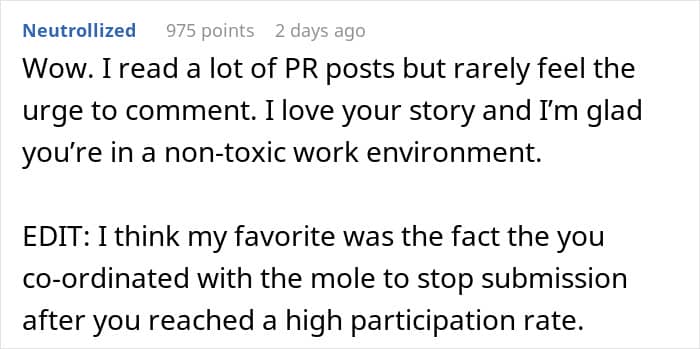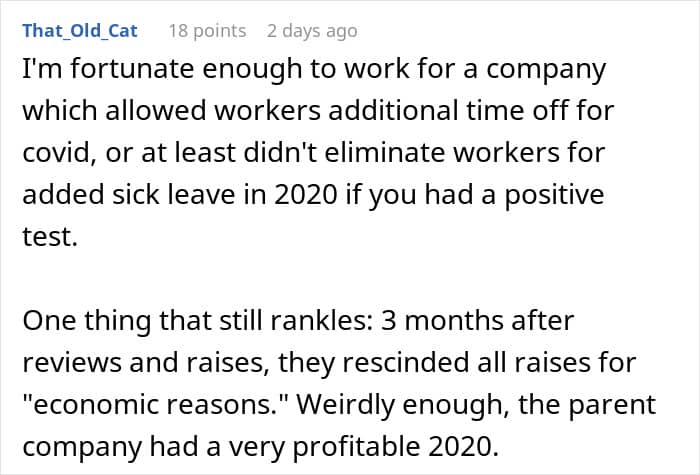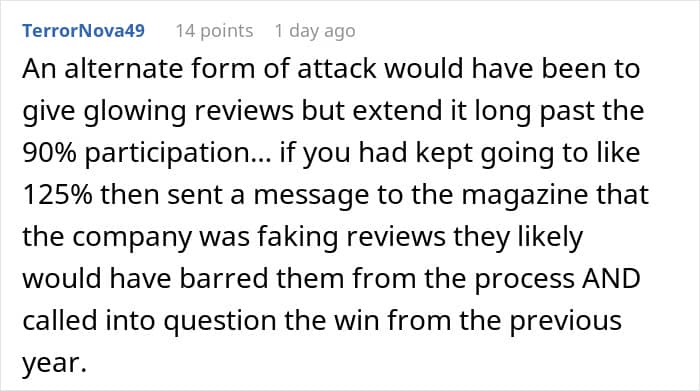Those who’ve experienced working for an abusive company know the sheer frustration of having to soldier on and swallow their pride to avoid losing their job. But some successfully get back at their heartless employers, and it’s always a satisfying story to hear about.
What you’re about to read is precisely that. Former staff members banded together to get even with their ex-bosses through the perfect petty revenge plot. Not only did they get the last laugh, but the company also got the karma they deserved.
The author remains proud of what he had accomplished with his former comrades, and understandably so. You’ll find his lengthy account as you scroll through.
RELATED:Abusive employers unfortunately exist, each one with varying degrees of cruelty

A man banded his former colleagues together for a petty revenge plot against their heartless ex-bosses
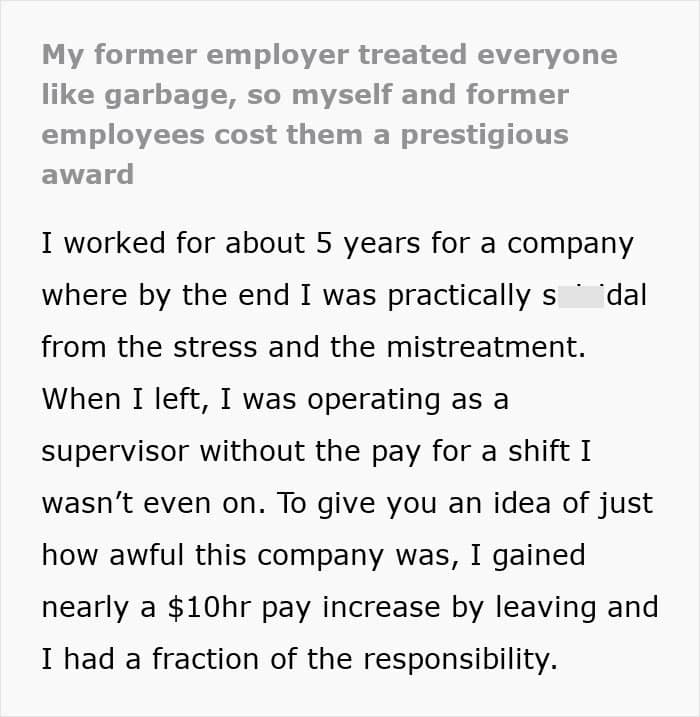


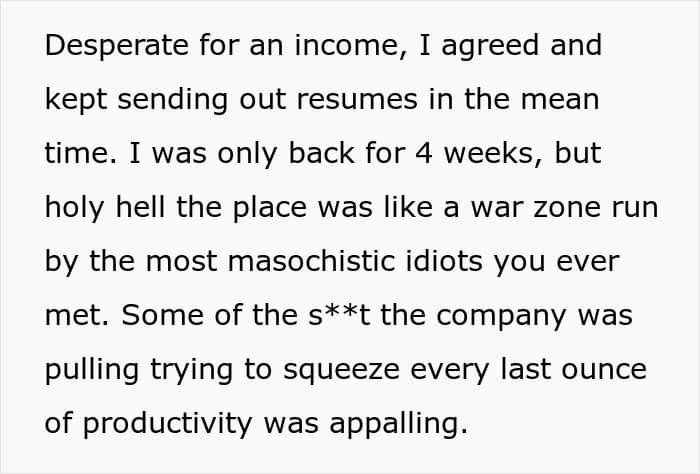
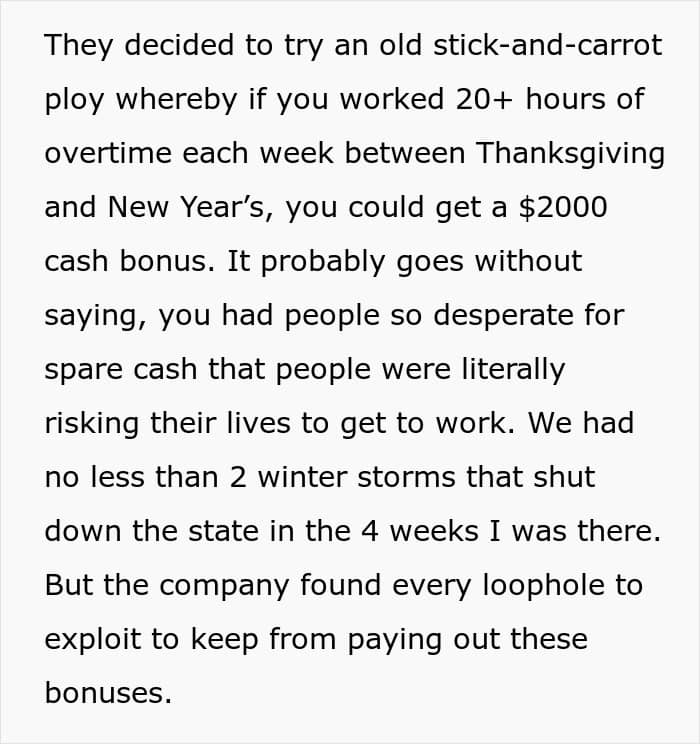

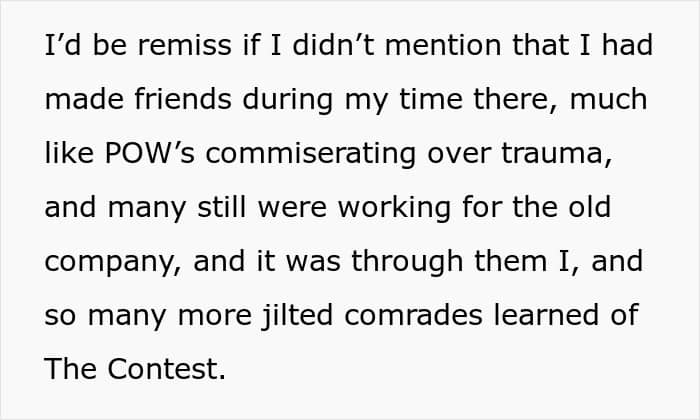
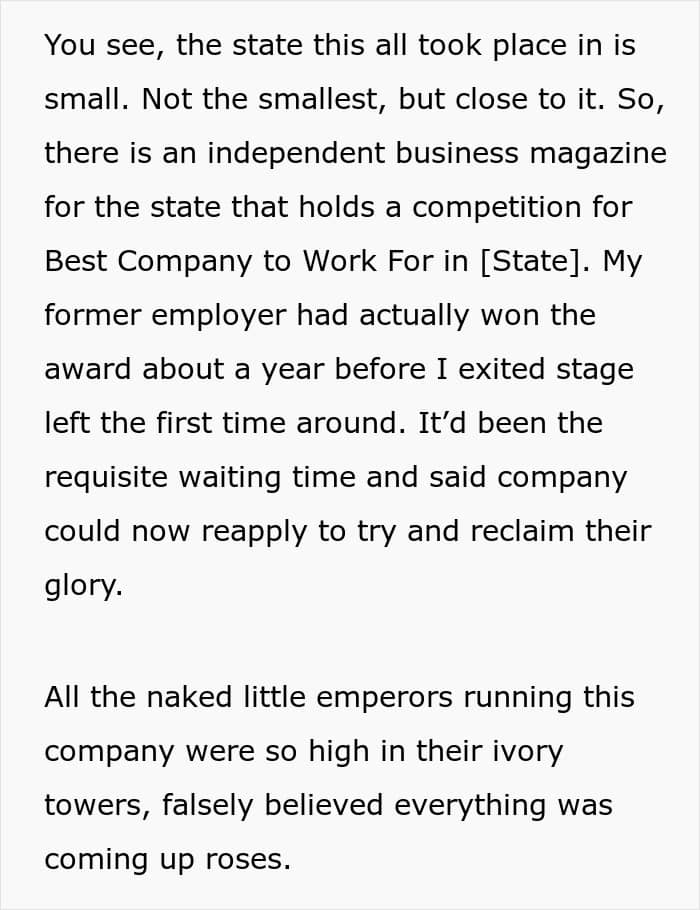
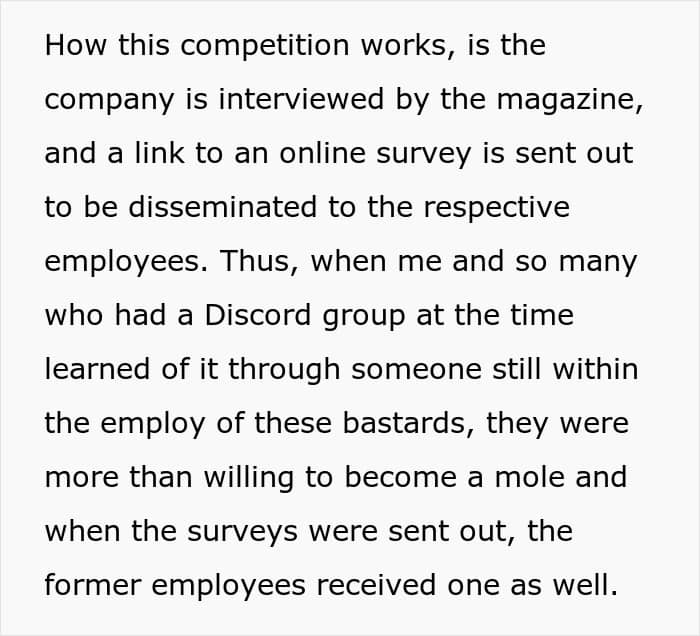

The ex-staffers were successful in their plan, causing long-term damage to the company
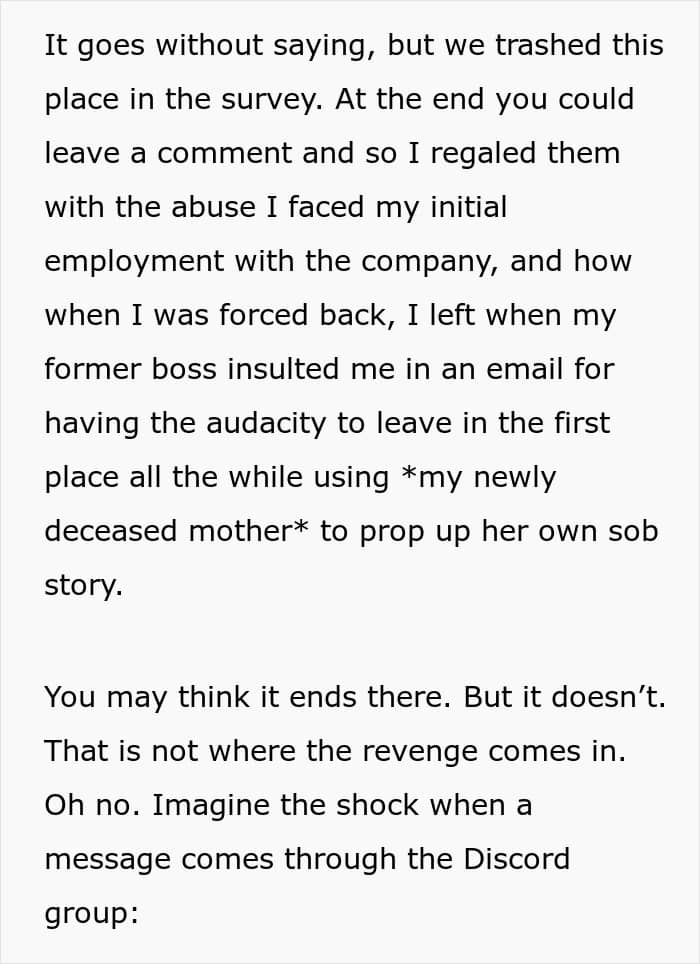

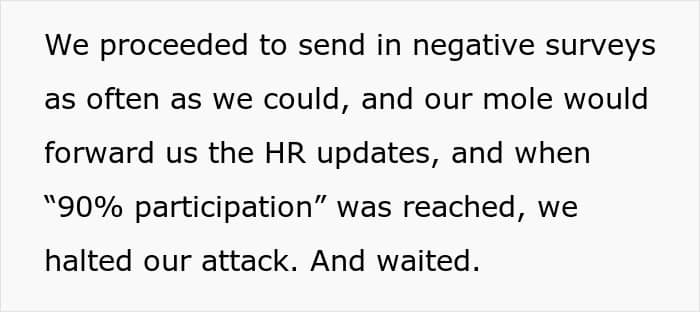
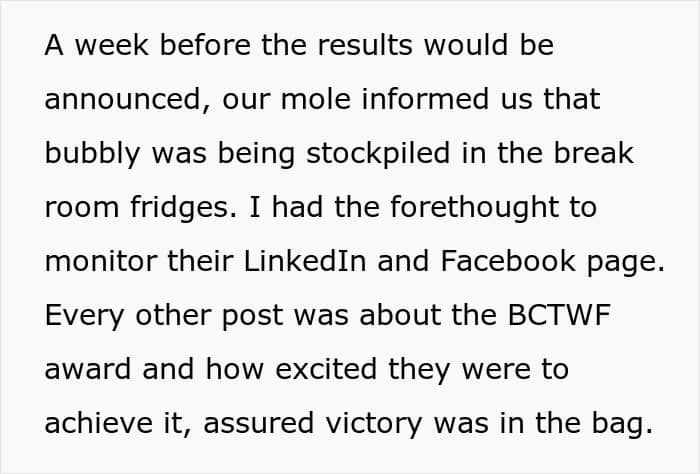
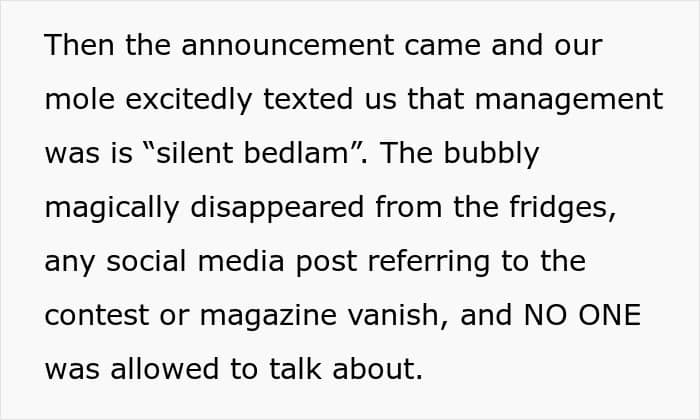


“Workjerkery” is an outdated business practice that many companies continue to employ

Blatant abuse was rampant and deemed normal in the old days of the corporate system. Psychologist and New York University professor Tessa West calls it “workjerkery,” a term she coined to describe companies engaging in toxic workplace practices like bullying, harassment, and burning out employees.
In an article for Forbes, author, educator, and work-life balance advocate Dr. Bryan Robinson mentioned Asian countries like China and Japan that are notorious for employing such strategies, along with a “major US bank” with the philosophy that says, “We expect you to change tires going 80 miles an hour.”
“The consensus is that to survive in this culture of sacrifice, employees can no longer afford to focus on one thing at a time,” Dr. Robinson wrote.
But why do companies abuse their employees? Senior analyst and business ownership expert Sean Peek points to possible personality disorders like narcissism.
However, Peek also attributes the prevalence of mistreatment to employee behavior. People may be afraid to speak out because they fear the consequences. Worse, others may adopt an “if you can’t beat them, join them” approach and support the company’s toxic practices.
“(Abusive employers) can garner this support from subordinates and those in the workplace who are weak enough to fear that if they don’t join in, they will be the next victims,” Peek wrote in an article for Business.com.
The story, however, showed the opposite approach of employees banding together, which made for a satisfying ending.
“Symbolic retaliation” may provide employees with a sense of satisfaction against an abusive employer

Research actually encourages other forms of retaliation that don’t involve violence. One study revealed that stabbing a voodoo doll that symbolizes a heartless supervisor may help restore justice.
Job crafting is another way of exacting silent revenge. In an article for Queens University’s Smith School of Business, professor Julian Barling described it as altering the time you spend on each task and dropping those that become redundant. It may also involve adopting a different mindset as you approach work.
“Developing job-related skills is one job-crafting behavior that has been shown to be particularly effective at countering the exhaustion from abusive supervision,” Barling wrote.
The author and his former colleagues didn’t explicitly execute their retaliation, nor did they use violence, but they didn’t do it symbolically, either. Their “guerilla” approach was a resounding success, serving their ex-bosses their much-warranted comeuppance.
Readers lauded the man and his former colleagues for their “sweet” revenge

